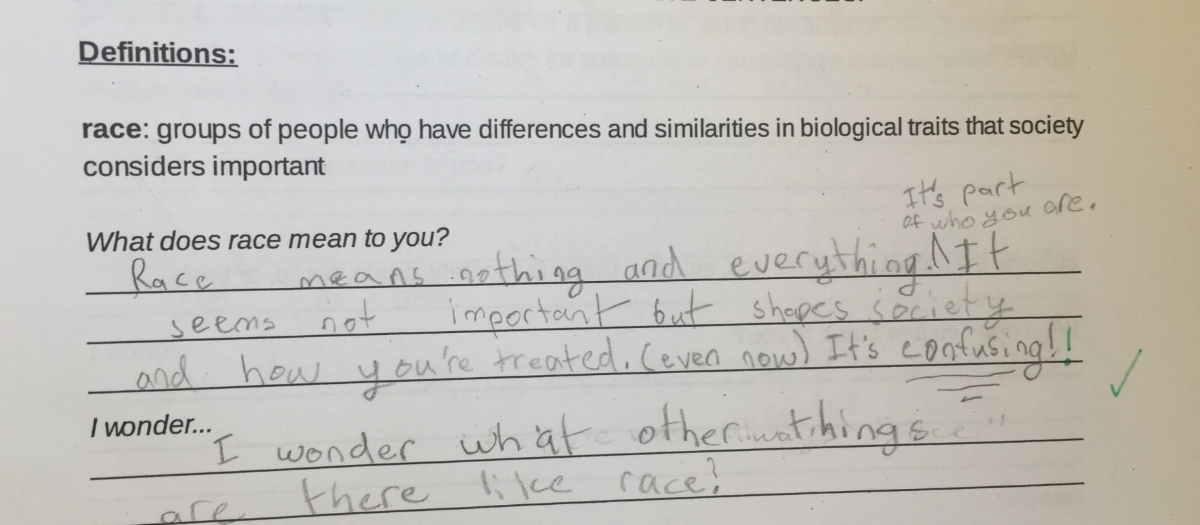Facilitating at the Asian Educators Alliance Conference
Last week, I was fortunate enough to facilitate a workshop at the Asian Educators Alliance (AsEA) Conference here in Washington, DC! I presented a workshop titled Rebranding Microaggressions: Otherizing and Marginalization at the AsEA Conference in Berkeley, CA in 2016, so it was wonderful to be back and connect with so many amazing educators on the other side of the country (and without even needing to fly anywhere)!
My workshop was titled What Continent Do You Think They Are From: Confronting & Challenging Internalized Stereotypes. I led participants through the drawing humans and guessing what continent they might be from activity that we created for our class as an example of one activity you could use to uncover racial, gender, geographic or other biases. I find that the activity highlights and counteracts internalized stereotypes, assumptions, and bias, and hoped it would provide an introductory point for addressing who is visible and heard in our classrooms and society. Then, I was excited to hear from participants about how the activity is relevant to our/their own experiences, and share ideas and resources for how we try to counteract one-dimensional or limited representation of Asian and Pacific Islander voices in our own communities.
As always, I really enjoyed the discussion as we went through the steps of the drawing humans activity. There were so many excellent questions about the design of the activity. For example, why do we use only crayons? And was the choice of colors of crayons deliberate? How might I have structured the activity differently for younger children? And so many more! It’s also always fascinating to see how differently we all approach the same activity - some people focus on drawing faces, others draw stick figures with props, others try to use the description to guess an actual person and then depict that person (and often write their name). This time around, one of the participants correctly guessed that I was describing Sadiq Khan!
My favorite part, however, is always hearing reflections and reactions. One participant described how she kept thinking of men even though four out of the five people I described were women. Another shared how she tried to think about who would have access to the positions and opportunities I described in different places. I shared how one of my 3rd graders asked, “Why do we only learn about people from North America?” after experiencing this activity and participants reflected on the curricula at their schools and changes they were making or would choose to make if they could.
The conference theme was mobilizing for equity, so I was thrilled to hear from others and garner ideas, inspiration, and support. It is always so enlightening to have time to talk with other teachers and I loved how attendees had traveled from all over the country, worked at many different kinds of schools, worked with students of all ages, and had a variety of roles at their schools, so we really had a variety of perspectives. One aspect of the conference I really appreciated was multiple workshops on leadership roles as representation in administration or positions of power is a key part of mobilizing for equity and advocating for change. I wasn’t able to attend one of those workshops this time around, but I loved the options and appreciate the reminder that representation matters!
Yet another highlight from the conference was reconnecting with Dr. Taharee A. Jackson, who coincidentally had visited our classroom a year ago. She was one of the keynote speakers and told us about her work as a professor of minority and urban education, specifically sharing the results of her research on teacher activists. While there is so much to learn from her (and I can’t wait to read her book that is coming out soon!), I especially took to heart the message that we need to support one another and finding a community of like-minded educators is absolutely ESSENTIAL to keep doing the work we try so hard to do.





